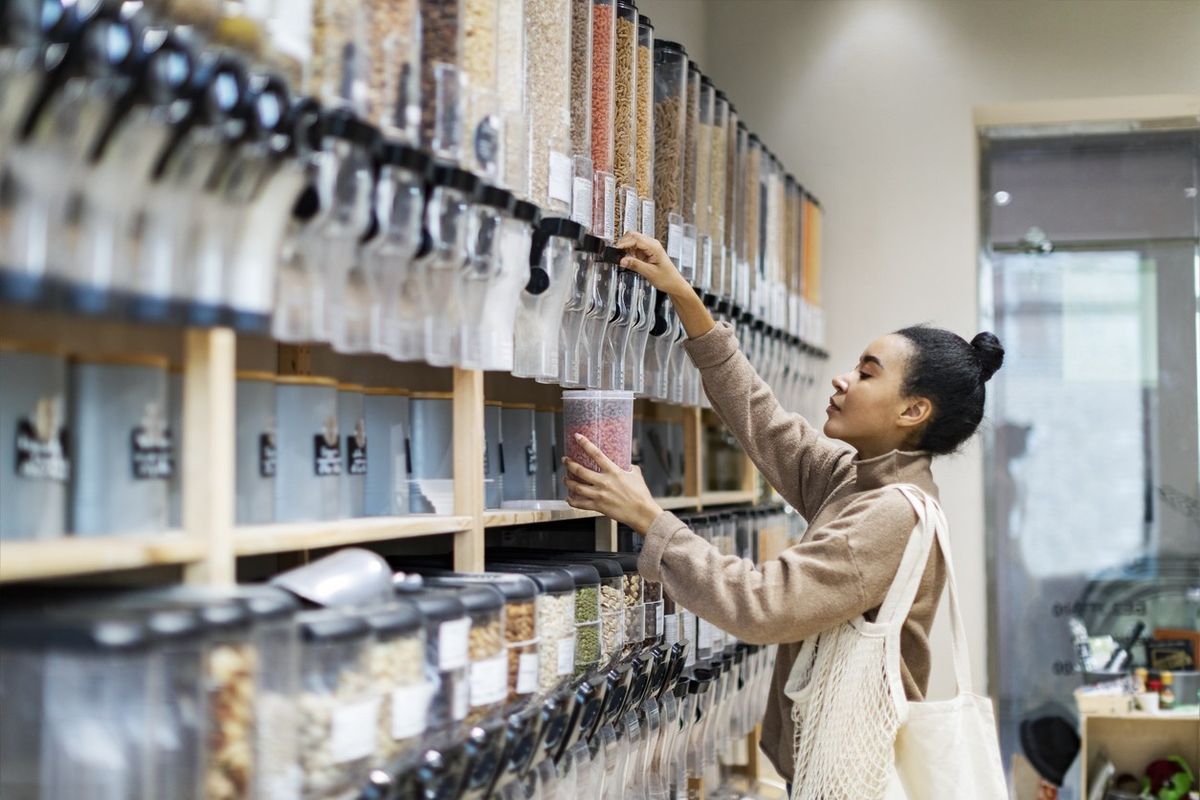Consumers now want a greater commitment from retailers in cutting food waste, refilling stations, sustainable packaging, and partnering with social purpose organisations, states a recent research, which also highlights that a good majority (69 per cent) of younger consumers are more likely to shop with what they see as socially responsible retailers though price sensitivity still plays a crucial role.
According to the findings, published in Vypr’s Consumer Horizon Report, reducing food waste is the most important factor for the majority of UK consumers (29 per cent), especially for Gen Z women aged 18-24 (38 per cent). More than a third (37 per cent) of men aged 18-24 said they needed food storage advice. A similar number of women aged 18-24 (33 per cent) want meal kits with the exact amount of ingredients included for them to cut down on food waste.
Refill stations for personal care, cleaning products, dry goods, and beverages are also in high demand. Consumers, particularly Gen Z women, are keen to use these stations, provided they offer a cost-saving of 6-10 per cent compared to packaged goods. The study indicates that older shoppers are less likely to use refill stations unless prices are reduced by 15 per cent or more, which Vypr said shows the importance of price in driving consumers to adopt sustainable shopping habits.
The third priority for brands and retailers is to adopt sustainable packaging. Awareness of eco-friendly packaging is high, especially among younger generations. Two-thirds of UK consumers say they expect to pay more for sustainably packaged products, and that figure rises to 86 per cent among Gen Z and Millennials. However, Vypr’s research suggests that while shoppers express willingness to pay more, price sensitivity still plays a crucial role.
Ben Davis, founder of Vypr, said: “There’s often a disconnect between consumer intentions and actions. Brands need to understand that simply offering sustainable options may not be enough if price points don’t match consumer expectations.
“For Gen Z and Millennials, sustainable products need to be competitively priced or risk losing long-term loyalty. We tested this by presenting products with and without the label ‘100 per cent Recycled Packaging’ and found price remained the key purchase decision-making factor for most consumers.”
Another factor in building loyalty among younger consumers is to showcase social responsibility. The research reveals that 60% of shoppers are more likely to shop at retailers that partner with food rescue organisations or promote a charitable cause. Among Gen Z and Millennials, this figure jumps to 69%, showing a strong preference for brands that demonstrate a social purpose.
The report also reveals that 85% of shoppers are willing to pay a deposit for reusable products, though it is younger consumers, particularly those aged 18-24 who express the strongest support for such initiatives.
The Consumer Horizon report which provides insights shaping retail, product innovation, and consumer behaviour going into 2025, can be seen here.


